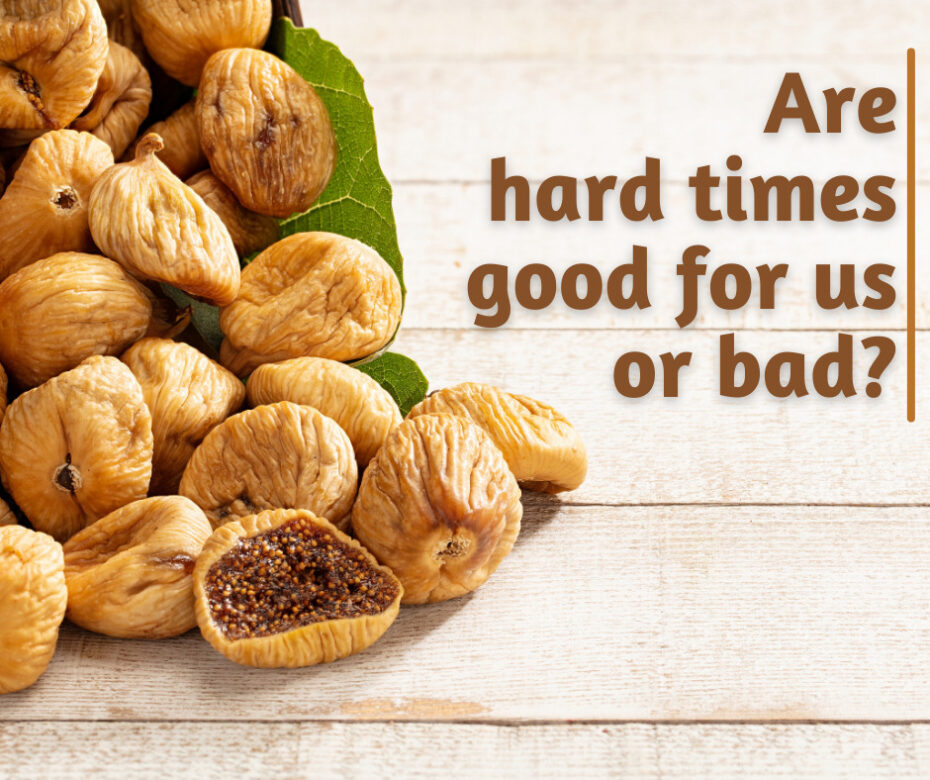I can’t remember the last time I ate a fig. I vaguely remember that I didn’t particularly like them. The last time I thought about figs was when I was in the Army during the Iraqi War. The prime minister of that country famously said that his country did not fear the United States. He said that his people could eat figs for years and could survive to fight against us, the enemy.
So, when the Lord showed the prophet Jeremiah two baskets of figs in front of the temple, either in a vision or in reality, I am not sure what they would have looked like. We are told, however, that one basket was full of really good figs and the other was full of really bad, rotten ones (Jer 24:2). I also assume that you can tell a good fig from a rotten one by simply looking at them. You can do that with an apple, so why not a fig? If you were going to eat one, you would choose the good fig. I am also told that lots of people really love a good fig. I guess I don’t know what I have been missing.
We don’t have to guess at what the two baskets of figs represent. The Lord clearly told Jeremiah. The nation of Judea was in terrible straits. About 600 years before Christ, the Babylonians had taken the brightest and best of the land into captivity to Babylon. They would be forced to serve their enemy. This included people like Daniel and Ezekiel. The Babylonians had also taken those skilled in building palaces and monuments because they were needed for such work in Babylon. The rest of the Jews were left in the land of Judea.
One basket of figs represented the people taken as slaves to Babylon. The other the people left in the land. Which group was pictured as the bad figs and which was pictured by the good figs?
The people left in the land saw themselves as the good figs. Those taken away by the Babylonians had been forced to leave their homes and lands, and such things now belonged to the people still in the land. Those that remained in the land became instantly richer. They also had access to the temple in Jerusalem. They claimed that all of this showed that they were blessed by God (Ezek 11:14-15). The captives in Babylon were forced to live as slaves in a pagan country. They were clearly the bad figs in the eyes of the people. We would all initially agree with that assessment.
But the Lord showed Jeremiah, the people, and us that such conclusions were absolutely wrong. Looks can be deceiving. The slaves in captivity were the blessed, good figs. The people left in their home country were the rotten figs. In ten years, the people in the land would be decimated by famine, plagues, and war. The temple would be destroyed, and they would be ridiculed by the nations around them (Jer 24:8-10).
The captives in Babylon, on the other hand, would experience a spiritual renewal. They would learn in that land to give up their idolatry. God would return them to the land of Judea, where they would serve Him (Jer 24:5-7). He was going to bless them.
That is not what we expected. But it is a common theme in the Bible. God often blesses His people through difficulties. We may look at those believers going through difficult times and be thankful we are not in their shoes. We certainly should have compassion and sympathy for them. But we should not lose sight of the fact that God often uses such difficulties for the good of His children.
When we see economically poor believers, for example, we universally are grateful we are not in their shoes. But looks are indeed deceiving in that case. James says that God often uses such poverty to make those believers rich in the faith and rich in the coming kingdom (Jas 2:5). The Jews in Babylon were really the rich ones, not the ones with all the homes and land in Judea.
Many people today, including believers, are worried about what is going on in our country and world. The very fabric of our society seems to be falling apart. If the Lord doesn’t return soon, we fear we are facing very hard times for ourselves and our families. Even if we don’t think that is the case, we all go through difficulties at various times in our lives. When and if we do, our lives may seem like a basket of rotten fruit. We may look at those who are not experiencing such things and see their circumstances as like a big bowl of juicy cherries.
But the Lord knows what He is doing. He knew what He was doing with His people in Babylon, and He knows what He is doing with us. When He places us in these situations, let’s look at it like choosing between rotten and good fruit. Let’s be glad He lets us eat from the good basket.


